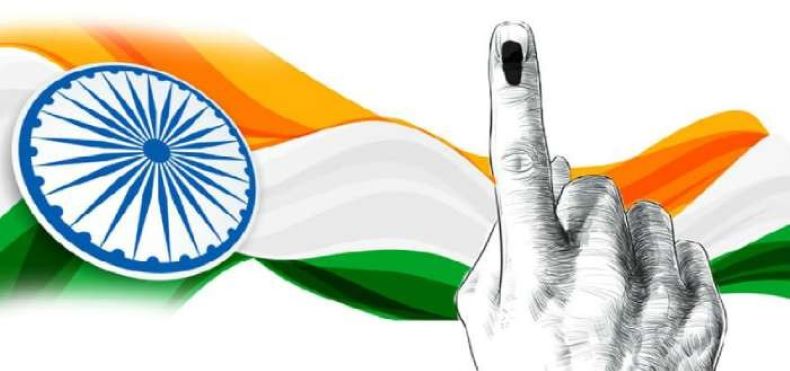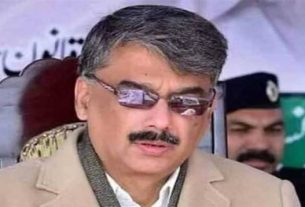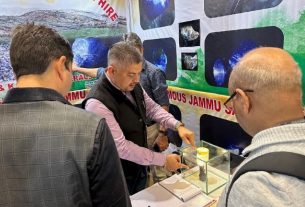By: Javid Amin
The political landscape of Jammu and Kashmir (J&K) is witnessing a unique and unprecedented shift as the region gears up for the 2024 Assembly elections. A significant 40% of the total 908 candidates contesting in the election are running as Independents, a statistic that has sparked both interest and controversy. With 365 Independent candidates filing their nominations to contest the three-phase polls, the high number has prompted allegations from major political parties, especially the National Conference (NC) and the Peoples Democratic Party (PDP), that many of these Independents have been propped up by the BJP as a strategic move to divide votes and weaken their prospects.
Political Allegations: Vote Division or Genuine Representation?
The surge in Independent candidates has created a hotbed of debate, with opposition parties accusing the BJP of sponsoring these candidates to splinter the vote bank in a region traditionally dominated by local parties like the NC and PDP. The BJP, however, has denied these allegations, asserting that the rise of Independent candidates is a reflection of the evolving political consciousness in J&K, with more candidates keen on representing local issues rather than aligning with national parties.
Critics argue that the delimitation exercise of 2022, which increased the number of Assembly seats from 87 to 90—47 in the Kashmir Valley and 43 in Jammu—has given the BJP an opportunity to manipulate electoral outcomes by backing Independent candidates in key constituencies. The opposition claims that this tactic is aimed at eroding the traditional support base of regional parties, particularly in the Kashmir Valley, where the BJP has historically struggled to gain a foothold.
Delimitation and Its Impact on the Electoral Landscape
The delimitation exercise carried out in 2022 significantly altered the electoral boundaries in J&K, sparking widespread controversy. The increase in Assembly seats was seen by many as an attempt to redraw the political map of the region in a way that would benefit the BJP. With 43 seats in the Jammu region—a BJP stronghold—the party is now focusing on consolidating its position while attempting to make inroads into the 47 seats in the Kashmir Valley, where it faces stiff opposition from the NC and PDP.
The opposition parties argue that the BJP’s support for Independent candidates is part of a broader strategy to divide the anti-BJP vote in the Kashmir Valley. By fielding or backing multiple candidates in key constituencies, the party is accused of aiming to dilute the vote share of the NC, PDP, and other regional players, thus creating an advantage for itself in a fragmented electoral environment.
The Role of Independents: Spoilers or New Political Voices?
The large number of Independent candidates in the 2024 J&K elections raises important questions about the future of regional politics. While some Independents are seen as genuine grassroots candidates representing local concerns, others are viewed as “spoilers” whose presence in the race could undermine the chances of more established parties. The opposition claims that many of these Independents are “dummy candidates” sponsored by the BJP to create confusion among voters and siphon off votes from its rivals.
However, for many voters, the rise of Independent candidates also reflects a growing disillusionment with mainstream political parties, particularly in the Kashmir Valley, where trust in traditional politics has eroded due to years of political instability, violence, and unfulfilled promises. These Independents are seen as offering a fresh alternative to the entrenched political class, focusing on issues such as development, employment, and governance, which have often been overshadowed by the larger national debate on Kashmir’s autonomy and security.
BJP’s Strategy: Consolidation in Jammu and Expansion in Kashmir
For the BJP, the 2024 elections present both a challenge and an opportunity. The party has a strong foothold in Jammu, where it enjoys widespread support from the Hindu-majority population, but it has struggled to gain traction in the Muslim-majority Kashmir Valley. The BJP’s strategy appears to be twofold: first, to consolidate its dominance in Jammu, and second, to make incremental gains in the Valley by leveraging the presence of Independent candidates.
In Jammu, the BJP is expected to focus on issues of development, nationalism, and security, themes that resonate with its core voter base. In the Kashmir Valley, however, the party’s approach is more complex. The BJP’s attempts to build a political base in Kashmir have been met with resistance, but the party is betting on a fragmented vote to potentially win a few seats or, at the very least, prevent a clear majority for its rivals.
Election Security: Heightened Vigilance Amid Rising Independent Candidacies
The 2024 elections are taking place in a region where security remains a significant concern. With 365 Independents in the race, ensuring the safety of candidates and voters has become a top priority for the administration. Security forces are on high alert, particularly in the wake of recent terror attacks in remote areas of Jammu and Kashmir, and measures are being taken to prevent any disruption of the electoral process.
The high number of Independent candidates also poses logistical challenges for election officials, who must ensure that all candidates have equal access to campaign resources and that the elections are conducted in a free and fair manner. Despite these challenges, the elections are expected to be a crucial test of the region’s democratic institutions following the abrogation of Article 370 and the reorganization of J&K into a Union Territory.
Restoring Statehood: A Lingering Question
Amidst the political maneuvering and the allegations of vote division, the issue of statehood for Jammu and Kashmir remains a central concern for many voters. The abrogation of Article 370 in 2019, which revoked the region’s special status, has left a lasting impact on the political landscape. While the government has repeatedly promised to restore statehood at an appropriate time, there is no clear timeline for when this will happen.
For the people of J&K, the restoration of statehood is seen as a critical step toward regaining political autonomy and ensuring that local voices are adequately represented in governance. As the 2024 elections approach, this issue is likely to be a focal point of debate, with regional parties and Independent candidates alike advocating for a return to statehood and greater political representation for the region.





